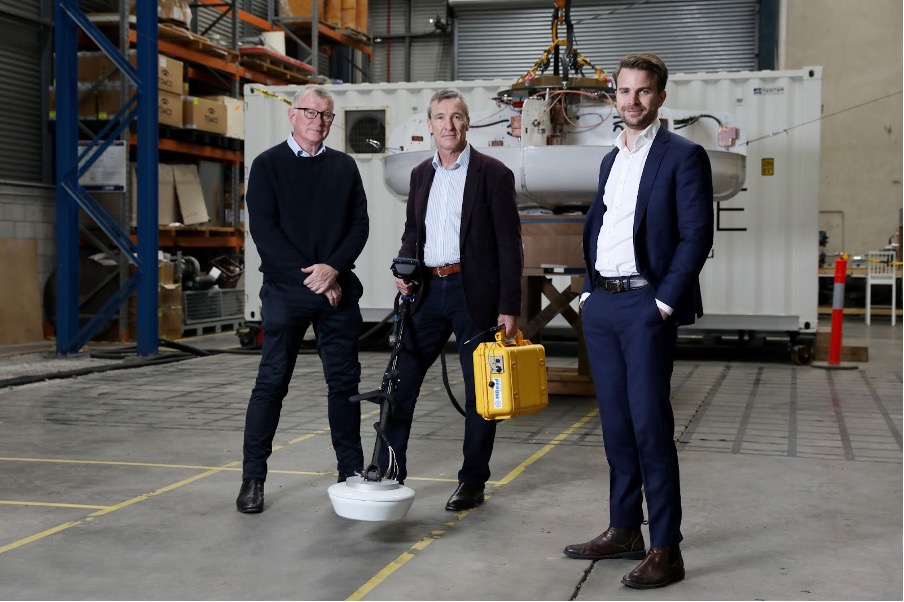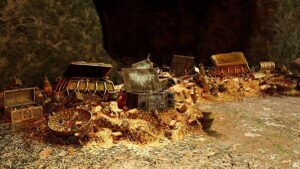Deep tech startup merger creates global powerhouse MagnaTerra Technologies

Pic via Getty Images
- A new deep tech company, MagnaTerra, has been formed after the merger of globally leading startups NextOre and MRead
- MagnaTerra’s launch follows an $11 million capital raise and support from some of Australia’s leading investors in technology, science and mining.
- The company combines more than two decades of world-class innovation in magnetic resonance (MR) sensing developed by Australia’s national science agency the CSIRO to detect minerals, explosives and drugs at a molecular level
Special Report: Australia has a new globally focused deep tech company in MagnaTerra Technologies following the merger of mining innovator NextOre and explosives detection startup MRead.
The combined company MagnaTerra Technologies has been backed in an $11 million capital raise supported by a number of leading investors in technology, science and mining.
MagnaTerra brings together more than two decades of innovation in magnetic resonance (MR) sensing developed by Australia’s national science agency the CSIRO.
The rapid, accurate and safe detection technology – similar to that used by MRIs in healthcare – can identify minerals, explosives and narcotics at a molecular level.
NextOre has applied highly penetrative technology to ore sorting to become a global leader in mining technology after it was spun out of a CSIRO R&D project. It’s since ruggedised and commercialised the sensors for use over conveyor belts and haul trucks in mines across the globe.
MRead has adapted the tech to develop world-class expertise in landmine and narcotics detection.
Growth to meet global demand
The capital raise will fund further developments in game-changing sensors for the defence, critical minerals, border security and humanitarian demining markets, where global demand is intensifying. This will include the development of detection capabilities for explosives, critical minerals for bulk sorting and iron ore applications.
Resources sector investment and advisory house RFC Ambrian invested in the raise via its QCM fund. The round also attracted high-net-worth investors introduced by Shaw and Partners.
The company’s capital table additionally includes the CSIRO, engineering group Worley, electronic solutions developer Codan and global industrial manufacturer Gebr Pfeiffer SE.
RFC Ambrian has been an investor in MRead and NextOre since their founding.
RFC chair Rob Adamson will also chair the newly formed entity and said MagnaTerra was a natural fit with the fund’s mandate.
“MagnaTerra is a sovereign tech platform with real revenue, high-impact IP and clear global applications,” Mr Adamson said.
“The company takes outstanding, world-leading detection technology developed by our national science agency, the CSIRO, that has significant potential to improve the economics and reduce the environmental impact of producing copper and other critical minerals.
“It additionally has important applications in the detection of explosives for humanitarian demining, border security and defence,” he said.
Shared core IP, specialist applications
MagnaTerra will continue to operate under established brands: NextOre for minerals; and MRead for security, defence and humanitarian demining applications.
NextOre’s systems are already operating in Chile, Zambia and the Philippines, with customers including Lundin Mining, First Quantum and Newcrest.
Its platform helps copper miners offset the effects of declining ore grades by enabling cost-effective sorting of the valuable mineral from waste. NextOre’s tech also dramatically reduces energy, water and chemical use by rejecting waste rock close to the source.
It’s now being adapted for lithium and iron ore, with future applications across critical minerals such as cobalt, antimony and bismuth.
“By enabling 100 per cent ore scanning in real time, our technology makes mines more productive and sustainable,” NextOre CEO Chris Beal said.
“That makes MagnaTerra a compelling opportunity for investors looking for scalable solutions at the intersection of deep tech, sustainability and security.”
Like NextOre’s sensors, MRead’s handheld mine detector was developed in partnership with the CSIRO. It has since been trialled successfully in Angola with The HALO Trust, a forerunner global demining.
Angola, Afghanistan and Iraq still have an estimated 10 million mines each, Cambodia an estimated seven million and more than two million landmines have been laid in Ukraine since 2022, with demining organisations scrambling to remove them.
MRead’s sensors are estimated to cut clearance times by up to 30 per cent by dramatically reducing false positives compared to metal detectors. Using MR sensing it directly detects RDX – one of two main explosive compounds commonly used in landmines globally. R&D has commenced on the other major explosive compound, TNT.
“Landmines are one of the great unresolved global challenges. Our technology promises to save lives and restore land to communities faster and more safely,” MRead and MagnaTerra CEO John Shanahan said.
The same MR technology can be adapted to detect narcotics and explosives in cargo, without opening packages or using harmful radiation.
“This merger is a consolidation of world-leading science, engineering and commercial momentum into a single vehicle with global reach,” Mr Shanahan said.

This article was developed in collaboration with NextOre, a Stockhead advertiser at the time of publishing.
This article does not constitute financial product advice. You should consider obtaining independent advice before making any financial decisions.
Related Topics
UNLOCK INSIGHTS
Discover the untold stories of emerging ASX stocks.
Daily news and expert analysis, it's free to subscribe.
By proceeding, you confirm you understand that we handle personal information in accordance with our Privacy Policy.








